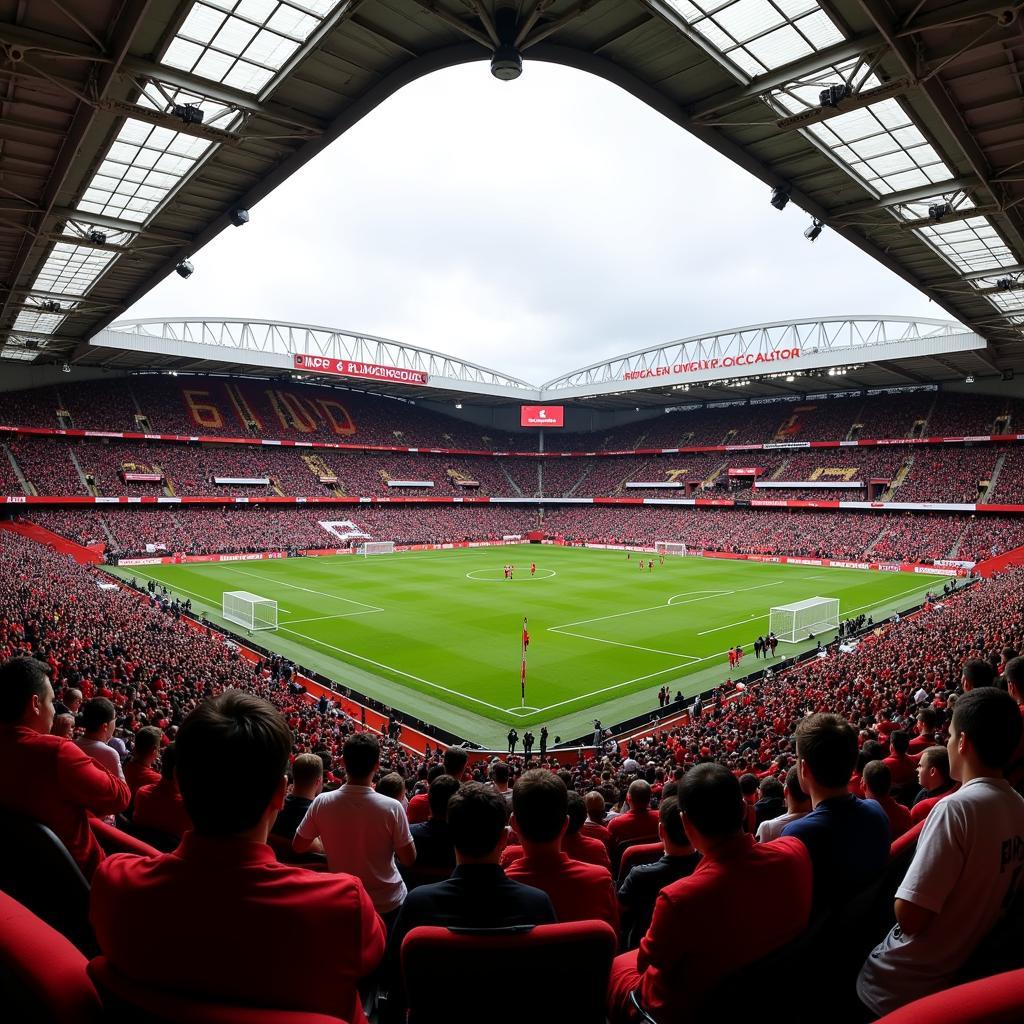Manchester Capitalism and football are intertwined, creating a unique and often controversial dynamic. This relationship has shaped the modern game, influencing everything from player transfers to club ownership and global fan bases. From the Industrial Revolution’s impact on the city to the rise of mega-rich club owners, the story of Manchester football is deeply embedded in the principles of capitalism.
The Birth of Football in Industrial Manchester
The seeds of football in Manchester were sown during the Industrial Revolution. The influx of workers to the city’s factories created a need for leisure activities, and football emerged as a popular pastime. This period saw the formation of early clubs, laying the groundwork for the future giants of Manchester United and Manchester City. Working-class communities embraced the sport, forging a strong connection between football and the city’s industrial identity.
The development of professional football in Manchester mirrored the city’s capitalist growth. Clubs began to compete for players and fans, driving up ticket prices and player wages. This early form of football capitalism set the stage for the modern era of multi-billion dollar clubs and globalized fan bases. The desire for success on the pitch fueled investment and innovation, transforming football into a major industry.
The Modern Era: Manchester Capitalism and the Premier League
The formation of the Premier League in 1992 marked a turning point in the relationship between Manchester Capitalism and football. The influx of television money and global sponsorships transformed the sport into a global spectacle. Manchester’s clubs, with their rich history and large fan bases, were perfectly positioned to capitalize on this new era.
 Manchester United tại Old Trafford trong kỷ nguyên Premier League
Manchester United tại Old Trafford trong kỷ nguyên Premier League
Manchester United, under the ownership of the Glazer family, became a global brand, attracting fans and sponsors from around the world. Their business model, focused on maximizing revenue through merchandising and commercial partnerships, epitomized Manchester capitalism’s influence on the game. Meanwhile, Manchester City’s transformation under Sheikh Mansour’s ownership demonstrated the power of massive investment in achieving sporting success.
The Debate: Is Manchester Capitalism Good for Football?
The influence of Manchester capitalism on football is a subject of ongoing debate. Critics argue that the focus on profit has eroded the sport’s values, leading to inflated transfer fees, unsustainable wage bills, and a disconnect between clubs and their local communities. Concerns have also been raised about the growing influence of foreign owners and the potential for football to become solely a business venture.
However, proponents argue that Manchester capitalism has driven innovation and investment in the game, leading to improved facilities, higher quality players, and a global reach that benefits both clubs and fans. They point to the economic benefits generated by football clubs, including job creation and tourism revenue.
Conclusion: A Continuing Evolution
The relationship between Manchester Capitalism and football is a complex and ever-evolving one. While the pursuit of profit has undoubtedly shaped the modern game, it has also brought significant benefits. The future of this relationship will depend on striking a balance between commercial success and the preservation of the sport’s core values. Manchester Capitalism will continue to play a crucial role in shaping the future of football.
FAQ
- How has the Industrial Revolution impacted Manchester football?
The Industrial Revolution led to the growth of Manchester and provided the working class with leisure time, giving rise to football as a popular pastime.
-
How has the Premier League changed Manchester football?
The Premier League brought significant financial investment through television and sponsorships, further commercializing the sport. -
What is the criticism of Manchester capitalism’s influence on football?
Critics argue that it prioritizes profit over the sport’s values, leading to inflated player costs and a disconnect with local communities. -
What are the benefits of Manchester capitalism in football?
Proponents argue that it drives innovation, improves facilities, attracts top players, and creates a global fanbase. -
What is the future of Manchester capitalism and football?
The future lies in finding a balance between financial success and preserving the core values of the sport. -
Who owns Manchester United?
Manchester United is owned by the Glazer family. -
Who owns Manchester City?
Manchester City is owned by Sheikh Mansour.
Nếu cần hỗ trợ hãy liên hệ Số Điện Thoại: 0372999996, Email: bong.da@gmail.com Hoặc đến địa chỉ: 236 Cầu Giấy, Hà Nội. Chúng tôi có đội ngũ chăm sóc khách hàng 24/7.